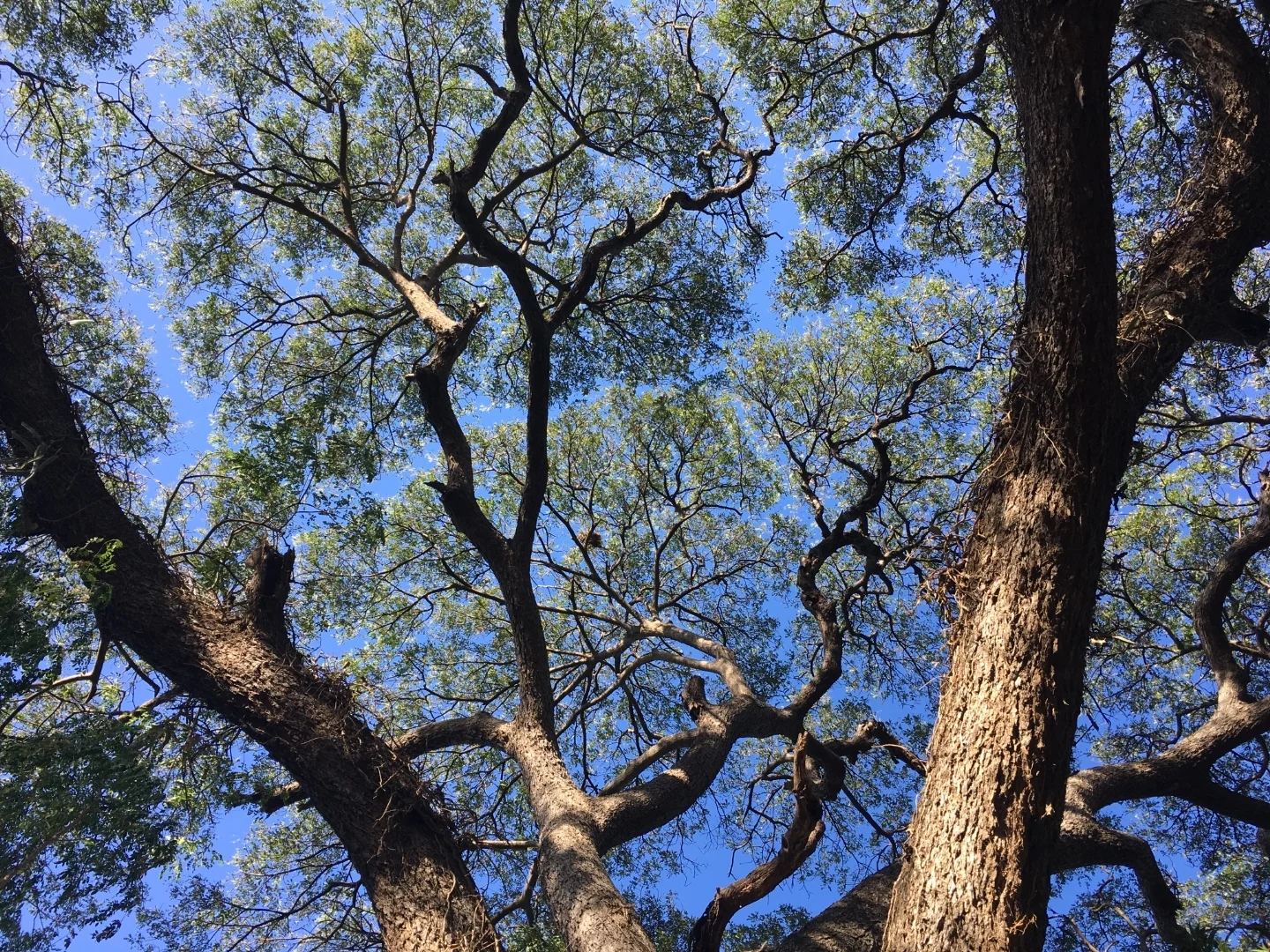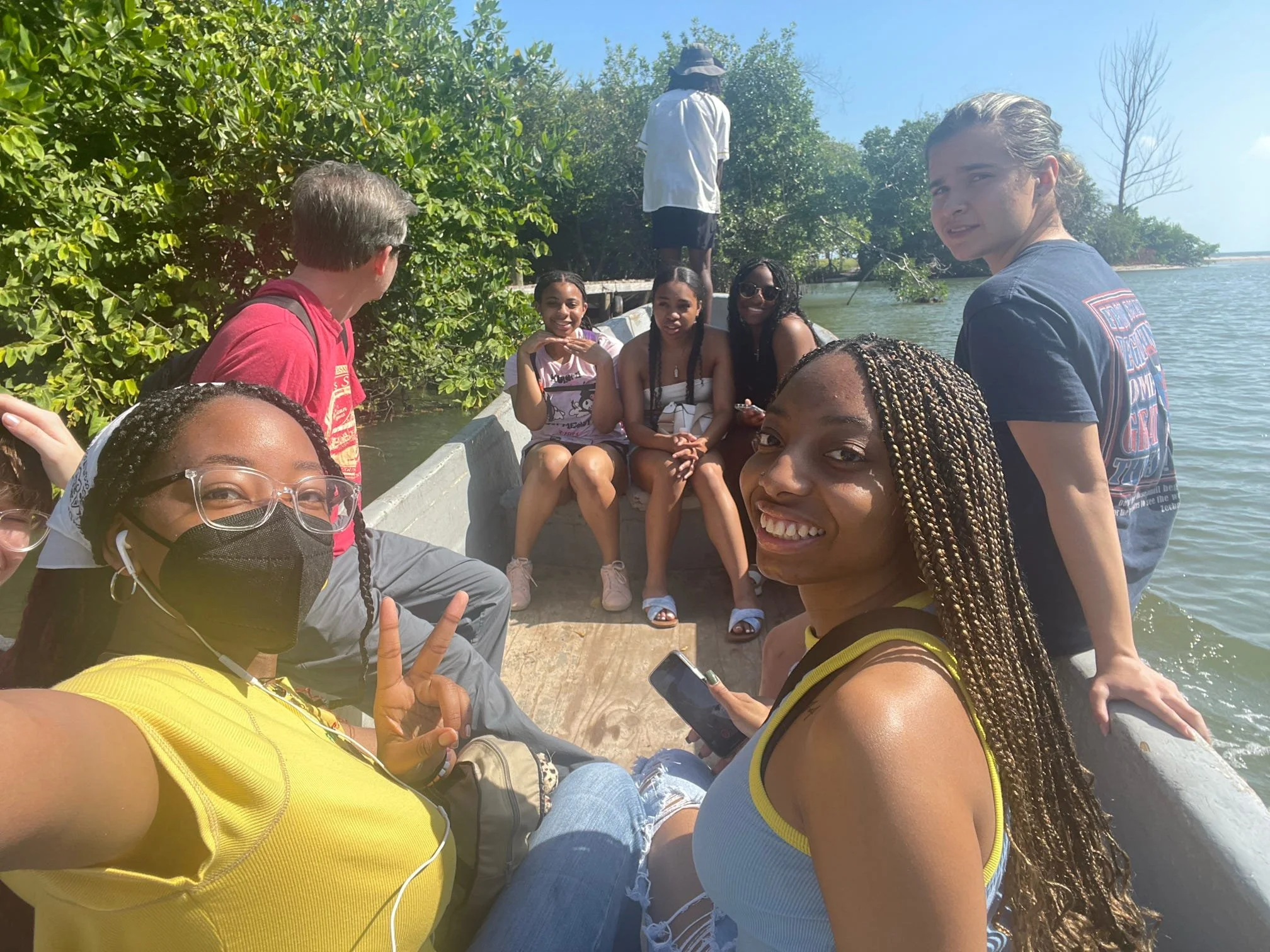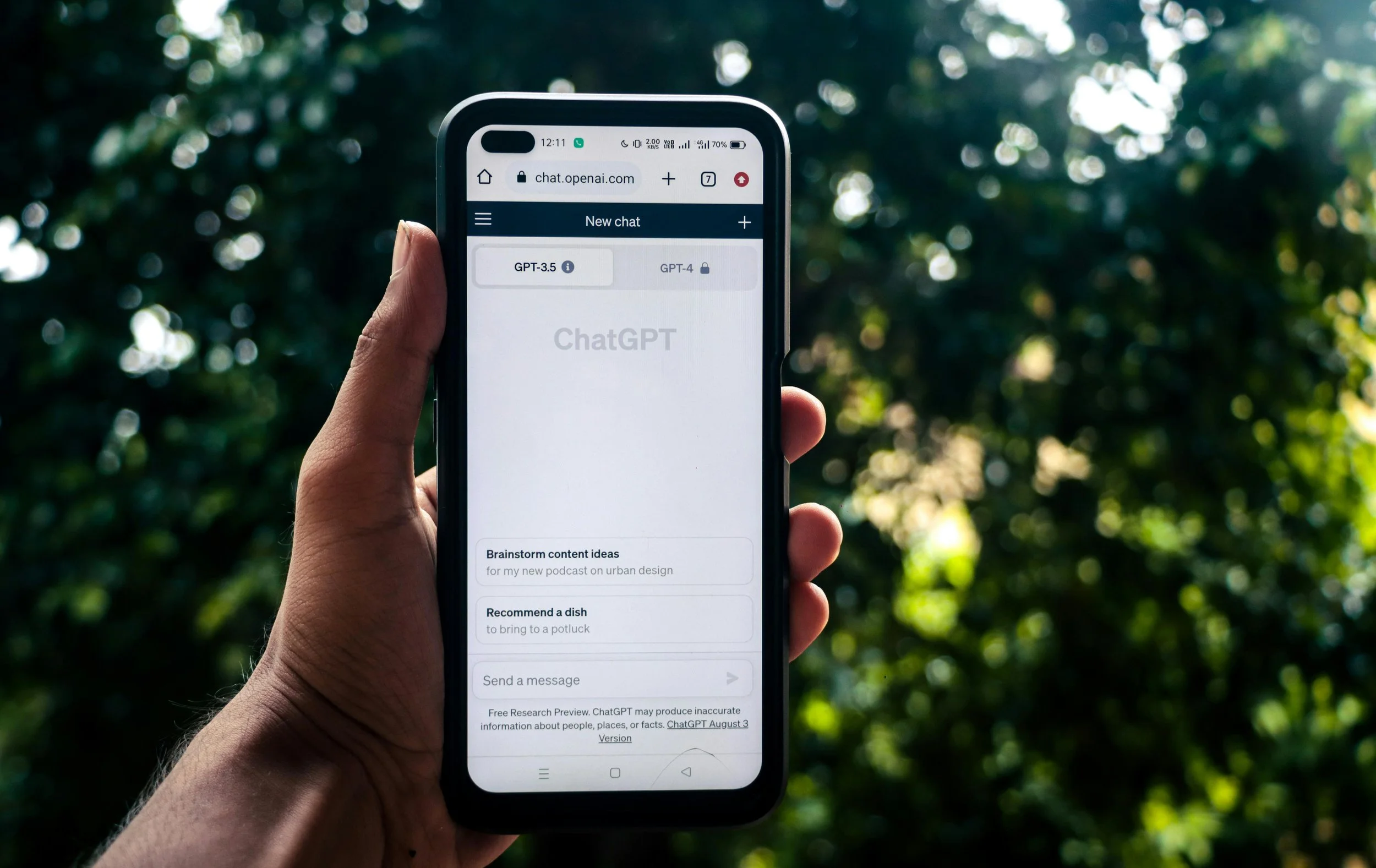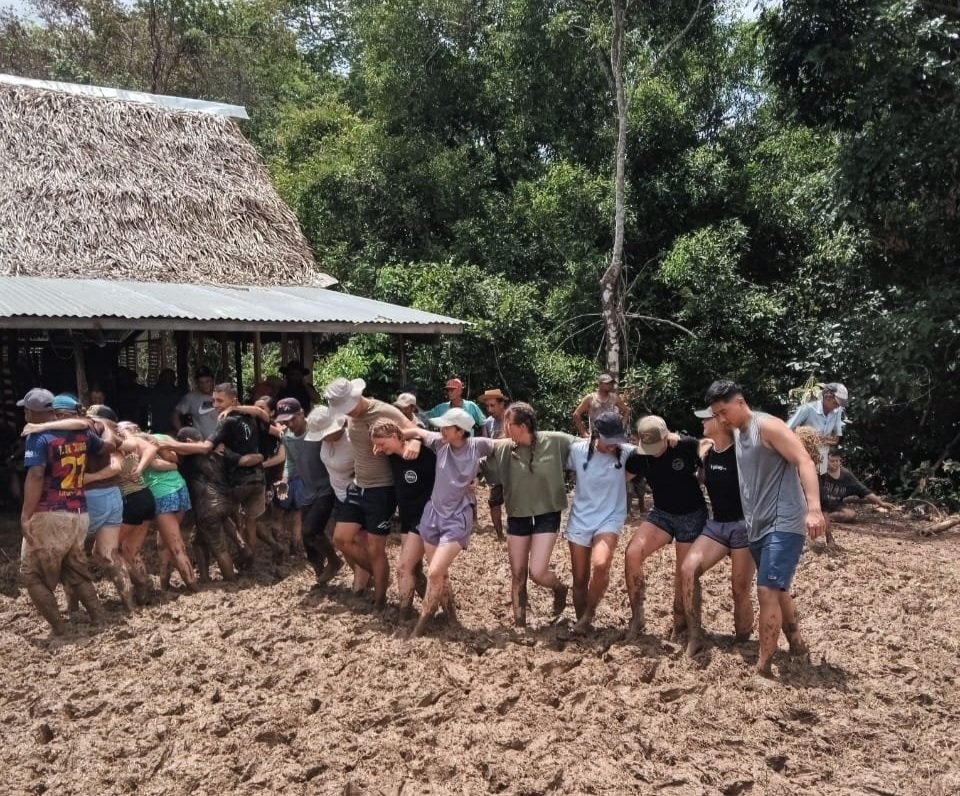Fambul Tik’s founder and CEO Amadu Massally brings virtual study abroad to Sierra Leone
/by Lara Garanzuay, Communications Specialist
This month Learn from Travel launched seven virtual global education programs in collaboration with Agnes Scott College. One of the programs was based in Sierra Leone and was organized in collaboration with Fambul Tik. This was the first virtual study abroad program in Sierra Leone! As part of the collaboration, we got a chance to ask Amadu Massally, the founder of Fambul Tik, about his organization, the connection between Sierra Leone and the U.S., and other related questions.
Amadu Massally
Founder and CEO of Fambul Tik
What is Fambul Tik?
Fambul Tik, which means Family Tree in English, is a community organization interested in reconnecting Sierra Leone with her diaspora. The organization primarily focuses on the links with African Americans known as Gullah-Geechees who show a lot of Sierra Leonean ways in their culture, language, diet, etc.
As our mission states, we are a cultural and educational organization aimed at promoting awareness and understanding the relationship between Sierra Leone and the Gullah-Geechee. We seek to foster research, preservation and development of the origins, history, culture, and the ethnicity of the Sierra Leone and Gullah-Geechee communities.
Initially formed in 2006 as the Sierra Leone-Gullah Heritage Association, as a means to nurture the relationships between Sierra Leoneans and the Gullah-Geechee, the organization has now morphed into Fambul Tik, with a broader scope. Fambul Tik has reconnected Sierra Leone to Jamaica, Trinidad and Tobago, Grenada and Carriacou. All of these are places beyond the United States where Sierra Leonean descendants can be found. So, in short Fambul Tik is an aspiring global organization that seeks to make lasting re-connections between the diaspora and their ancestral land, using the Sierra Leone-Gullah-Geechee Connection as a model.
How does Fambul Tik work to develop relationships with descendants of Sierra Leone?
Our main objectives are:
To collect, preserve and present the history of the Sierra Leone Gullah Connection
To foster Community and Economic Development.
To foster Tourism in both Sierra Leone and Gullah Communities.
To foster Exchange Living Programs for both Sierra Leone and Gullah Communities
To strengthen the relationship between Sierra Leone and America
Our approach is to visit a given place where Sierra Leonean descendants may be, based on historical records documented by historians. Particularly the Trans-Atlantic ‘Slave Voyages’ Database, which leads us to where people from Africa were taken to, against their will. Based on these records, we find and engage those folks who are already doing similar work or are interested in making links with Sierra Leone specifically; or Africa in general.
In addition to the many events we have either attended or hosted in Gullah-Geechee country, we made ancestral links between African Americans of Sierra Leonean heritage with people in Jamaica, Trinidad and Tobago, Grenada and Carriacou. Folks in America are more than open to this, and we have seen tremendous support in all of these places.
African Americans visit Bunce Island, a place in Sierra Leone where enslaved people were held before being sent to North America and the Caribbean. Tens of thousands of enslaved Africans were taken from Bunce Island to the Low Country in South Carolina and Georgia. Many maintained their culture, which is known as the Gullah-Geechee culture. (Image by: Fambul Tik)
What sparked you to begin work on Fambul Tik?
I don't really know what sparked me, but it was a moment on a beach on Hilton Head Island, SC where my “spark” may have been born. Here is my story ...
In 2006, while presiding over an organization called the Sierra Leone Network, I visited Greenville, SC, to watch the sneak preview of the documentary, “African American Lives.” After watching the film, I asked some of the hotel staff whether they were Gullahs? Feeling offended by my ignorance I observed from their reactions, to assume that every black person in South Carolina should be Gullah, one of them replied: “No meeennn, those folks are down by the Coast!” With a distinct accent that I later found out was similar to Gullah.
I realized that a lot of Gullah-Geechee people do not know that their ancestry is Gullah-Geechee even though they may know that their ancestry is that which collectively forms the Gullah-Geechee Heritage Cultural Corridor Commission; from the areas in South Carolina and Georgia, or even the southern part of North Carolina and the northern part of Florida.
As we continued our discussions around our reactions to the film, I excitedly told the rest of the group about my desire to drive four hours to “the Coast,” just go and see and meet Gullah-Geechee people. It did not take much convincing from me before we reached consensus.
Three things stuck in my head that day! First, that the Gullah-Geechees who used to own 100 percent of the island now only own about ten percent. Second, the features of these African Americans were so African in appearance that it was quite noticeable to me after living in the U.S. for 23 years, at that point, and having seen many African Americans. Third, the feelings and self-expressions I had at the ocean knowing that my country was on the other side of the Atlantic; a place I hadn’t been in about 23 years at that moment, was uncomfortable if not tormenting. I returned back to the Washington, DC area, wrote about my experiences and someone wrote back suggesting if I had ever spoken to Joseph Opala, the historian who had worked for a long time on the Sierra Leone Gullah Connection, starting in 1980, when he presented his ideas at the United States Embassy, in Freetown, Sierra Leone.”
Why is this work important?
This work is important for at least two reasons. First, we need to tell our own narratives, our own accurate stories. Once we establish these narratives we must then initiate programs that have the potential to effectively mobilize people on both the Sierra Leonean and American sides of the story. As a second reason, we will move beyond the history and culture and on to purposeful work, up to and including charitable work, social entrepreneurship or outright investments for profits.
Africa will never realize her optimal potential outside of her diaspora. The sooner we realize this and work together to make this possible, the better things will become for black people.
A Gullah sweetgrass basket maker from Mt. Pleasant, South Carolina, known as the sweetgrass basket capital of the world, shares techniques with villagers in Rogbonko Mathaka, a remote village in Sierra Leone, known for shuku Blay baskets which are very similar. (Image by: Fambul Tik)
Where do you see Fambul Tik in the next 5 years?
My personal dream is to see Fambul Tik evolve into a leading heritage community organization that spans the West Coast of Africa at a minimum. But a bigger dream is that in five years we would have established our community organization as a representative of some of our diaspora actors who want to do different things in Sierra Leone. We would have become an entity that teaches Sierra Leone’s history and culture to Sierra Leoneans in the diaspora; our immigrant children, including our deeper diaspora with the Gullah-Geechee and Sierra Leonean Americans.
Beyond the history and culture, we would have become a trustworthy and credible “gatekeeper” for those in the diaspora who may want to be more involved in Sierra Leone through charitable work, social entrepreneurship and/or investments for profit. I want to drive that point home because we are purposeful in wanting to go ‘beyond the fanfare’. A phrase I use as inspiration to do more of what we do. Fambul Tik does and goes beyond just tours.
What do you hope students will learn about Sierra Leone and Gullah-Geechee communities as part of their participation in the Learn from Travel study abroad program?
Well, first and foremost, they will learn about the close and historic links between Sierra Leone and the United States. They will learn about the rice culture and economy and how the enslaved Africans became the Gullah-Geechees. Also about the Trans-Atlantic Slave Trade especially as it relates to North America. They will learn the three historical themes that Sierra Leone illustrates: Slavery, Resistance and Abolition. We also hope students will grasp that the Gullah language evolved from both English and African words.
What advice would you give college faculty considering taking students to Sierra Leone for a study abroad program?
I advise them to research the country properly, especially with regard to the U.S. government’s point of view as guided by the State Department. They should also talk to people like us who have organizations that promote and coordinate study abroad programs. We are currently exploring partnerships with Coastal Carolina University, where Dr. Fredanna D. McCormack McGough, who has done some study abroad programs to African countries, will be a great resource for ideas and possible replication. We can make those connections.
How can students and faculty support your work? Do you have any internship or volunteer opportunities for students?
That is an excellent question! Maybe because it’s something we had not thought about or made any moves towards that. If students and/or faculty can see value in our work we will like to provide opportunities for them to do so. Maybe one of the things we can do is to look at what others have done in the past with the same or similar environment.
If you’re interested in taking students to Sierra Leone in person or virtually, you can visit our faculty-led programs page or our virtual programs page. To learn more about Fambul Tik, please visit their website.















